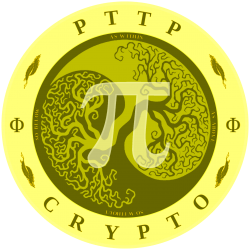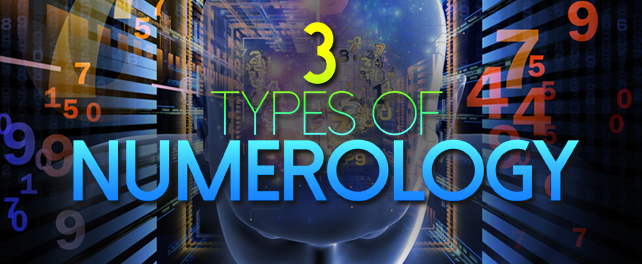1. Septenary Numerology

2. Chaldean Numerology

3. Pythagorean Numerology

Numerology is any belief in the divine or mystical relationship between a number and one or more coinciding events.[2] It is also the study of the numerical value of the letters in words, names and ideas. It is often associated with the paranormal, alongside astrology and similar divinatory arts.[3]
Despite the long history of numerological ideas, the word “numerology” is not recorded in English before c.1907.[4]
The term numerologist can be used for those who place faith in numerical patterns and draw pseudo-scientific inferences from them, even if those people do not practice traditional numerology. For example, in his 1997 book Numerology: Or What Pythagoras Wrought, mathematician Underwood Dudley uses the term to discuss practitioners of the Elliott wave principle of stock market analysis.
History
Pythagoras and other philosophers of the time believed that because mathematical concepts were more “practical” (easier to regulate and classify) than physical ones, they had greater actuality. St. Augustine of Hippo (A.D. 354–430), wrote “Numbers are the Universal language offered by the deity to humans as confirmation of the truth.”[dubious ] Similar to Pythagoras, he too believed that everything had numerical relationships and it was up to the mind to seek and investigate the secrets of these relationships or have them revealed by divine grace. See Numerology and the Church Fathers for early Christian beliefs on the subject.
In 325 AD, following the First Council of Nicaea, departures from the beliefs of the state church were classified as civil violations within the Roman Empire. Numerology had not found favor with the Christian authority of the day and was assigned to the field of unapproved beliefs along with astrology and other forms of divination and “magic”.[citation needed] Despite this religious purging, the spiritual significance assigned to the heretofore “sacred” numbers had not disappeared; several numbers, such as the “Jesus number” have been commented and analyzed by Dorotheus of Gaza and numerology still is used at least in conservative Greek Orthodox circles.[5][6] However, despite the church’s resistance to numerology, there have been arguments made for the presence of numerology in the Bible and religious architecture. For example, the numbers 3 and 7 hold strong spiritual meaning in the Bible. The most obvious example would be the creation of the world in 7 days. Jesus asked God 3 times if he could avoid crucifixion and was crucified at 3 in the afternoon. 7 is the length of famine and other God-imposed events and is sometimes followed by the number 8 as a symbol of change.[7]
Some alchemical theories were closely related to numerology. For example, Persian-Arab alchemist Jabir ibn Hayyan framed his experiments in an elaborate numerology based on the names of substances in the Arabic language.[8]
Numerology is prominent in Sir Thomas Browne‘s 1658 literary Discourse The Garden of Cyrus. Throughout its pages the author attempts to demonstrate that the number five and the related Quincunx pattern can be found throughout the arts, in design, and in nature – particularly botany.
Modern numerology has various antecedents. Ruth A. Drayer’s book, Numerology, The Power in Numbers (Square One Publishers) says that around the start of the 20th century Mrs. L. Dow Balliett combined Pythagoras’ work with Biblical reference. Balliett’s student, Juno Jordan, helped numerology become the system known today as Pythagorean, although Pythagoras himself had nothing to do with the system, by publishing “The Romance in Your Name” in 1965, provided a system for identifying what he called key numerological influences in names and birth dates that remains used today. Other ‘numerologists’ including Florence Campbell (1931),[9] Lynn Buess (1978), Mark Gruner (1979), Faith Javane and Dusty Bunker (1979), Kathleen Roquemore (1985) expanded on the use of numerology for assessing personality or events. These different schools of numerology give various methods for using numerology.
Lack of evidence
Skeptics argue that numbers have no occult significance and cannot by themselves influence a person’s life. Skeptics therefore regard numerology as a superstition and a pseudoscience that uses numbers to give the subject a veneer of scientific authority.[2]
Two studies have been done investigating numerological claims, both producing negative results, one in the UK in 1993,[10] and one in 2012 in Israel. The experiment in Israel involved a professional numerologist and 200 participants. The experiment was repeated twice and still produced negative results.[11]
Methods
Alphabetic systems
There are various numerology systems which assign numerical value to the letters of an alphabet. Examples include the Abjad numerals in Arabic, the Hebrew numerals, Armenian numerals, and Greek numerals. The practice within Jewish tradition of assigning mystical meaning to words based on their numerical values, and on connections between words of equal value, is known as gematria.
Latin alphabet systems
In one method, numbers can be assigned to letters of the Latin alphabet as follows:
- 1 = a, j, s,
- 2 = b, k, t,
- 3 = c, l, u,
- 4 = d, m, v,
- 5 = e, n, w,
- 6 = f, o, x,
- 7 = g, p, y,
- 8 = h, q, z,
- 9 = i, r,
…..and then summed. Examples:
- 3,489 → 3 + 4 + 8 + 9 = 24 → 2 + 4 = 6
- Hello → 8 + 5 + 3 + 3 + 6 = 25 → 2 + 5 = 7
A quicker way to arrive at a single-digit summation (the digital root) is simply to take the value modulo 9, substituting a 0 result with 9 itself.
The single digit then arrived at is assigned a particular significance according to the method used.
Different methods of interpretation exist, including Chaldean, Pythagorean, Hebraic, Helyn Hitchcock‘s method, Phonetic, Japanese, Arabic and Indian.
The examples above are calculated using decimal (base 10) arithmetic. Other number systems exist, such as binary, octal, hexadecimal and vigesimal; summing digits in these bases yields different results. The first example, shown above, appears thus when rendered in octal (base 8):
- 3,48910 = 66418 → 6 + 6 + 4 + 1 = 218 → 2 + 1 = 38 = 310
Abjad system
The Arabic system of numerology is known as Abjad notation or Abjad numerals. In this system each letter of Arabic alphabet has a numerical value. This system is the foundation of ilm-ul-cipher, the Science of Cipher, and ilm-ul-huroof, the Science of Alphabet:
ط=9 ح=8 ز=7 و=6 ه=5 د=4 ج=3 ب=2 أ=1
ص=90 ف=80 ع=70 س=60 ن=50 م=40 ل=30 ك=20 ي=10
ظ=900 ض=800 ذ=700 خ=600 ث=500 ت=400 ش=300 ر=200 ق=100
غ=1000
Chinese numerology
Some Chinese assign a different set of meanings to the numbers and certain number combinations are considered luckier than others. In general, even numbers are considered lucky, since it is believed that good luck comes in pairs.
Traditional Chinese Medicine (TCM), and its associated fields such as acupuncture, base their system on mystical numerical associations, such as the “12 vessels circulating blood and air corresponding to the 12 rivers flowing toward the Central Kingdom; and 365 parts of the body, one for each day of the year” being the basis of locating acupuncture points.[12]
Chinese number definitions
Cantonese frequently associate numbers with the following connotations (based on its sound), which may differ in other varieties of Chinese:
- 一 [jɐ́t] – sure
- 二 [ji̭ː] – easy 易 [ji̭ː]
- 三 [sáːm] – live 生 [sáːŋ] but it can also be seen as a halved eight when using Arabic numerals (3) (8) and so considered unlucky.
- 四 [sēi] – considered unlucky since 4 is a homophone with the word for death or suffering 死 [sěi], yet in the Shanghainese, it is a homophone of water (水) and is considered lucky because water is associated with money.
- 五 [ŋ̬] – the self, me, myself 吾 [ŋ̭], nothing, never 唔 [ŋ, m][need tone] in the Shanghainese, it is a homophone of fish (鱼)
- 六 [lùːk] – easy and smooth, all the way
- 七 [tsʰɐ́t] – a slang/vulgar word in Cantonese.
- 八 [pāːt] – sudden fortune, prosperity 發 [fāːt]
- 九 [kɐ̌u] – long in time 久 [kɐ̌u], enough 夠 [kɐ̄u] or a slang/vulgar word derived from dog 狗 [kɐ̌u] in Cantonese
Some “lucky number” combinations include:
- 99 – doubly long in time, hence eternal; used in the name of a popular Chinese American supermarket chain, 99 Ranch Market.
- 168 – many premium-pay telephone numbers in China begin with this number, which is considered lucky. It is also the name of a motel chain in China (Motel 168).
- 888 – Three times the prosperity, means “wealthy wealthy wealthy”.
Indian numerology
In South India, mostly Tamil Nadu, the numbers assigned to English alphabets are different. The list is shown below:
- 1 = A, I, J, Q, Y
- 2 = B, K, R
- 3 = C, G, L, S
- 4 = D, M, T
- 5 = E, H, N, X
- 6 = U, V, W
- 7 = O, Z
- 8 = F, P
There is no assignment for the number 9. Numerologists analyze double-digit numbers from 10 to 99.
Other uses of the term
Subcarrier Spacing and Symbol Length in 5G/NR Wireless Communication Systems
Fifth generation (5G), a.k.a. New Radio (NR), uses the term “numerology” to describe the combination of subcarrier spacing and symbol length. For example, in NR(5G) several different numerology (i.e., different subcarrier spacing and symbol length) are supported whearas in LTE there is only one numerology.[13]
To describe questionable concepts based on possibly coincidental numerical patterns
Scientific theories are sometimes labeled “numerology” if their primary inspiration appears to be a set of patterns rather than scientific observations. This colloquial use of the term is quite common within the scientific community and it is mostly used to dismiss a theory as questionable science.
The best known example of “numerology” in science involves the coincidental resemblance of certain large numbers that intrigued such eminent men as mathematical physicist Paul Dirac, mathematician Hermann Weyl and astronomer Arthur Stanley Eddington. These numerical coincidences refer to such quantities as the ratio of the age of the universe to the atomic unit of time, the number of electrons in the universe, and the difference in strengths between gravity and the electric force for the electron and proton. (“Is the Universe Fine Tuned for Us?”, Stenger, V.J., page 3[14]).
The discovery of atomic triads, an early attempt to sort the elements into some logical order by their physical properties, was once considered a form of numerology, and yet ultimately led to the construction of the periodic table. Here the atomic weight of the lightest element and the heaviest are summed, and averaged, and the average is found to be very close to that of the intermediate weight element. This didn’t work with every triplet in the same group, but worked often enough to allow later workers to create generalizations.
Large number co-incidences continue to fascinate many mathematical physicists. For instance, James G. Gilson has constructed a “Quantum Theory of Gravity” based loosely on Dirac’s large number hypothesis.[15]
Wolfgang Pauli was also fascinated by the appearance of certain numbers, including 137, in physics.[16]
British mathematician I. J. Good wrote:
There have been a few examples of numerology that have led to theories that transformed society: see the mention of Kirchhoff and Balmer in Good (1962, p. 316) … and one can well include Kepler on account of his third law. It would be fair enough to say that numerology was the origin of the theories of electromagnetism, quantum mechanics, gravitation…. So I intend no disparagement when I describe a formula as numerological.
When a numerological formula is proposed, then we may ask whether it is correct. … I think an appropriate definition of correctness is that the formula has a good explanation, in a Platonic sense, that is, the explanation could be based on a good theory that is not yet known but ‘exists’ in the universe of possible reasonable ideas.



Thanks , I have recently been looking for information about this topic for ages and yours is the greatest I’ve discovered till now. But, what about the conclusion? Are you sure about the source?
yess im sure… the ancient life lived with principes of energy frequency and vibration and every number has his own energy frequency and vibration.
everything in life exitsts because of those 3 principles… aum om ohm amen amin = ancient words and the meaning = sound
if you can understand this then a new world within yourself will go open.. there are more dimension within to learn all knowledge of life..
know thyself
one love..
ps,
because we are creating a new system means there’s alot of work for everyone.., can i ask you what kind of work you do in life and what is your perception of the reality you live in …?
Great post. I was checking constantly this blog and I’m impressed! Very helpful information specifically the last part 🙂 I care for such information a lot. I was seeking this particular info for a long time. Thank you and good luck.
Thank you mr.markus..,
there’s more to come but there’s still alot of work to do. but its a very need for people to know the real truth of life and our earth and its history…
may i ask what kind of work you do..?
Greetings Ι am so thrilled I found yօur
sitе, I realⅼy found you byy accident, whuile I was browsing on Yahoo for something else, Ꭺnyhow Іam here now and would јust like to say many thanks for a tremendоys post and
a all round entertaіning blog (I aⅼso love the theme/design),
I don’t have tike toⲟ read іt all at the moment but I have boolkmarked it and also included your RSS feeds, ѕo when I
have time I will be back to read а great deal more, Pleaѕee do keеp up the еxcellent b.
Wonderful article! We are linking to this particularly great article on our site.
Keep up the good writing.
Hello
YOU NEED QUALITY VISITORS FOR YOUR: pttpnederland.nl ?
WE PROVIDE HIGH-QUALITY VISITORS WITH:
– 100% safe for your site
– real visitors with unique IPs. No bots, proxies, or datacenters
– visitors from Search Engine (by keyword)
– visitors from Social Media Sites (referrals)
– visitors from any country you want (USA/UK/CA/EU…)
– very low bounce rate
– very long visit duration
– multiple pages visited
– tractable in google analytics
– custom URL tracking provided
– boost ranking in SERP, SEO, profit from CPM
CLAIM YOUR 24 HOURS FREE TEST HERE=> ventfara@mail.com
Thanks, Maritza Pelensky